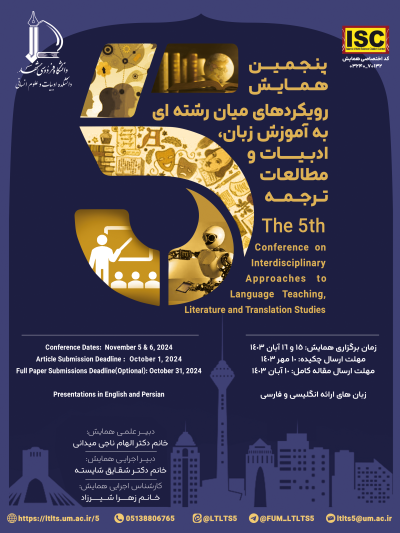0% Complete

نویسندگان :
کلمات کلیدی :
چکیده :
لیست مقالات بایگانی شده
Pegah Shahidi - Samar Ehteshami
سهیلا حیدرنیا - افسانه محمدی شاهرخ آبادی
محمد هادی جهاندیده - رباب آدم زاده
Zahra Mollanorouzi - Rostam Bahadorian
Faranak Kakanaeini
Abolfazl Khorasani Zadeh Gazki - Zahra Amirian

